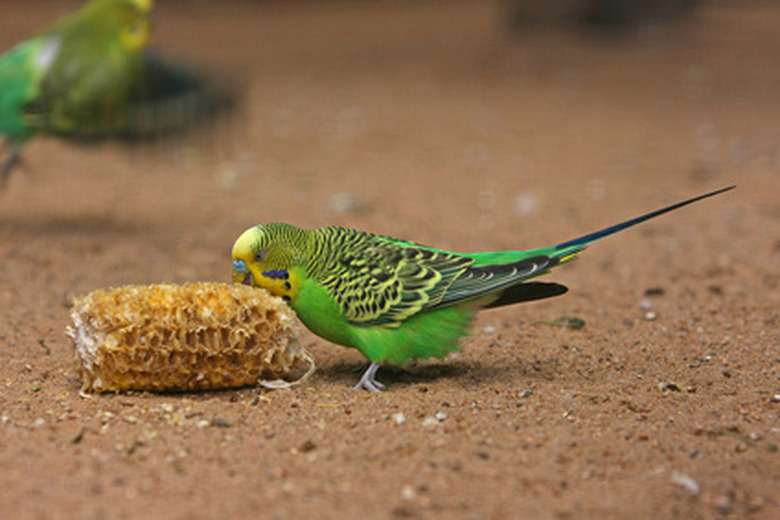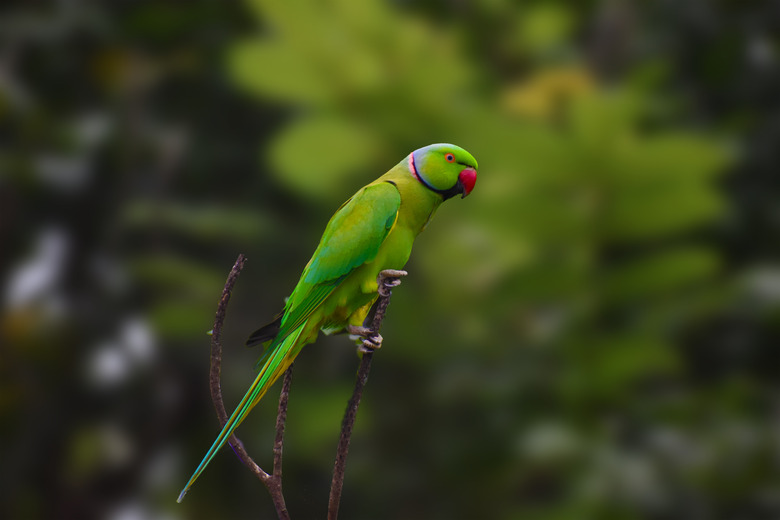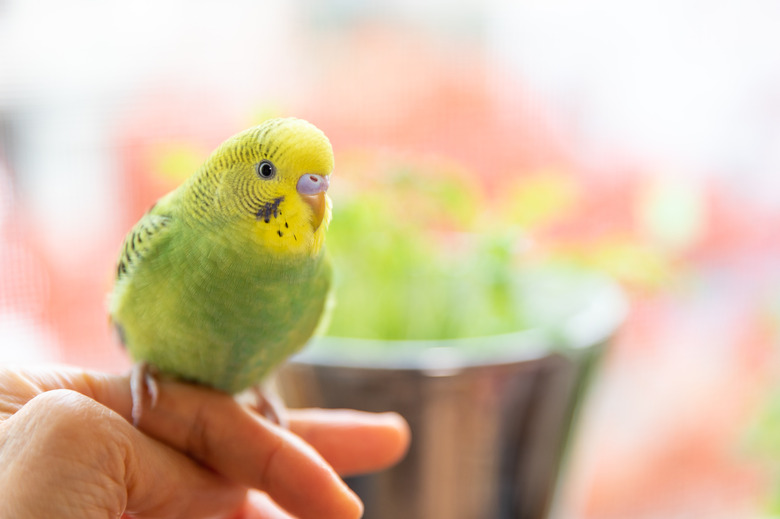How To Feed Parakeets With Wild Bird Food
Parakeets are social birds that make wonderful pets for families with children. We often wonder what items are best to feed our parakeet pet. It's good to know how to feed parakeets with wild bird food. The most important thing to know is that wild bird food should only be given to parakeets as an occasional treat. Wild bird feed is different from the parakeet-specific foods available in pet stores, so there are some helpful rules to follow if giving a parakeet wild bird food as a treat.
Give your bird balance
Give your bird balance
Give your parakeet a well-balanced diet. Parakeets, also known as budgies (from their official name, budgerigar) need more than just seeds. Budgies need fruits and vegetables as well. A well-balanced diet includes fruits, vegetables, seeds, and some grains. Another item parakeets need is a cuttlebone.This is a crustacean shell that budgies whittle away at in order to get calcium, magnesium and other vitamins and minerals.In addition to a cuttlebone, parakeet parents can and should provide a mineral block. This is a large square of just what it sounds like: minerals!
Parakeet food
Parakeet food
Check and refill your bird's food daily. Parakeets often leave empty husks in the feeding bowl, so their food should be changed daily to avoid accidentally starving the parakeet. At a quick glance, it may look as though the food cup is full, when in fact it is full of empty husks. A good rule of thumb is to skim the empty husks off the top of the feeding bowl once a day. Then, let the budgie finish what's left, and refill. This way, you aren't putting new food on top of old repeatedly.
While it may appear as though a parakeet rarely drinks water, it is vital that a budgie's water bowl gets cleaned and changed every day. Fresh, clean water is crucial. Water bowls can get a layer of scum on the inside, making them unappealing to most budgies. Wash the bowl daily to avoid grossing out your bird. Make sure your budgie eats and drinks. Keep an eye on them, especially in the beginning, and learn how to spot signs of distress or problems.
Some budgies may insist on eating from the floor of their cage, and do not recognize a food dish or water bowl. Others are persnickety and fussy. Get to know your individual bird and their finicky preferences. It's always better to overfeed (slightly) than let your budgie be so picky that she starves herself.
Wild bird feed
Wild bird feed
Occasionally, you can give wild bird seeds or foods to your budgie as a special treat. Parakeets can eat wild bird seed if it is offered in moderation. Wild bird seeds do not have the same standards of nutrition as parakeet feeds, so they should only be used as a treat. They are often full of fat, which can be harmful when consumed on a daily basis. Wild bird mixes are formulated for common garden birds — avian species whose dietary needs are quite different from parakeets' needs.
Give low-fat seeds
Give low-fat seeds
Ensure that high fat seeds, like sunflower seeds, are not a staple of the parakeet's diet. Wild bird seeds will often have sunflower seeds or similar seeds that are too high in fat for a parakeet to eat regularly. Your best option is to give your budgie sprouted seeds. Sprouted seeds are lower in fat and high in protein or carbohydrates, depending on which seed sprouted.
Take vitamins!
Take vitamins!
Add vitamins to seeds that are not specifically for parakeets. Parakeet seeds and foods are made with the appropriate nutrition for the bird. Other seeds do not have the appropriate vitamins and minerals required for a budgie.


